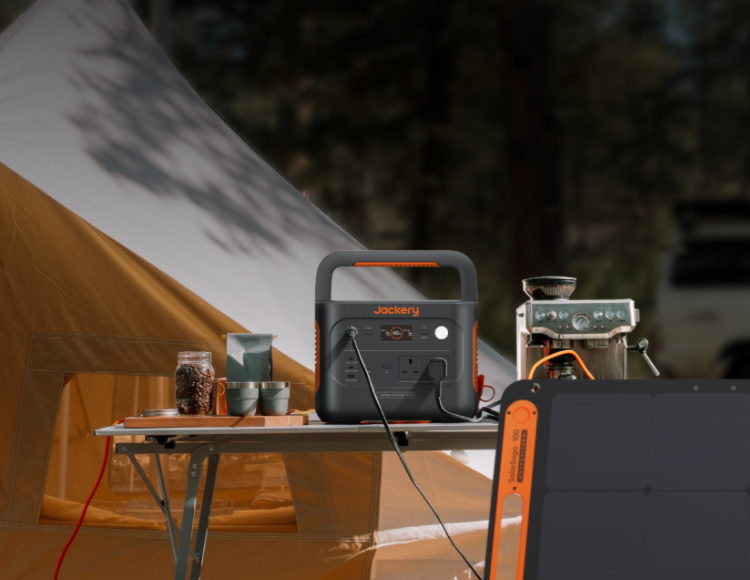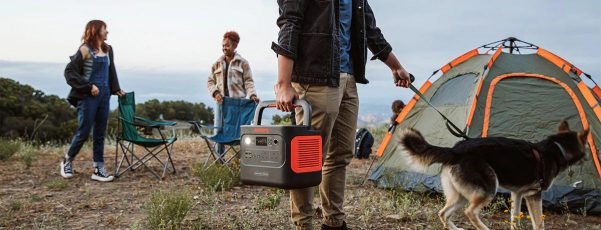If you're considering putting a static caravan on your property, one of the first questions you'll want to ask is if you require planning permission. The answer varies according to geography, usage, and local authority regulations. Whether you intend to live in a caravan, rent it out for vacation, or park it during a home renovation, knowing when planning permission is required can spare you from costly legal trouble.
In this guide, we'll define essential terms, explain regional planning standards, and walk you through the application process—ensuring you're well-informed and compliant across the UK.
|
Key Takeaways: |
|
- Planning permission is a formal approval provided by the local planning authority (often the local council) to carry out specific sorts of building or land use modifications. - The Town and Country Planning Act of 1990 governs static caravan planning approval in England, with individual authorities setting particular local regulations. - The Planning (Scotland) Act 2019 established a separate planning system for Scotland. While comparable concepts apply, Scottish local authorities may have differing policies on caravan placement. - Wales has its own planning system under the Planning (Wales) Act 2015. Welsh local authorities frequently prioritise environmental conservation and land usage. - Northern Ireland's planning system is unique and governed under the Planning Act (Northern Ireland) 2011. - Except for the planning permissions for your static caravan, you may also need the caravan gear if you want to live off the grid. We highly recommend Jackery Explorer 3000 v2 or 2000 Plus portable power station as your portable power source. |
Planning Permission for Static Caravans: Key Terminology Explained
When considering placing a static caravan on your property, one of the first issues to ask is if planning permission is required. Understanding what planning permission involves in this scenario is critical for avoiding legal issues and ensuring your caravan location conforms with UK legislation.
What Is Planning Permission?
Planning permission is a formal approval provided by the local planning authority (often the local council) to carry out specific sorts of building or land use modifications. It guarantees that developments, including the placement of static caravans, adhere to municipal planning principles, environmental concerns, and land-use regulations.
Planning Permission for Static Caravans Explained
A static caravan—also known as a mobile home or lodge—is a big, transportable unit intended for long-term residential or recreational use. Planning authorisation for a static caravan on private land is frequently dependent on the intended use, period of stay, and municipal rules.
Temporary vs. Permanent Use: Planning permission may not be required for temporary use, such as short holidays or seasonal stays, if the caravan is for temporary use. However, the caravan must be genuinely temporary and not used as a permanent residence.
Permanent Residential Use: Planning permission is usually mandatory if the static caravan is intended as a permanent home or accommodation. This is because it changes the land's use and could impact local infrastructure, environment, and community.
Agricultural or Site-Specific Use: Sometimes, caravans are placed on agricultural land for workers or specific site needs. Special agricultural occupancy conditions apply, and planning permission will be necessary.
Key Factors That Influence Permission
The location of the caravan (e.g., greenbelt, residential area, agricultural land)
The length of stay and frequency of use
Whether the caravan is connected to utilities and services
Local council's planning policies and restrictions
Exceptions and Permitted Development Rights
Certain approved development rights may apply, allowing for restricted caravan deployment even without full planning clearance. These rights, however, are strictly limited and frequently subject to constraints.

Is Planning Permission for Caravans Consistent Across the UK?
When it comes to planning permission for static caravans, it's crucial to note that restrictions vary across the UK. While the underlying principles are identical, planning legislation and enforcement varied widely across England, Scotland, Wales, and Northern Ireland because of variances in devolved powers and local planning bodies.
England
The Town and Country Planning Act of 1990 governs static caravan planning approval in England, with individual authorities setting particular local regulations. The primary consideration remains the caravan's intended use—whether for temporary vacation or permanent dwelling. Local governments have discretion in interpreting approved development rights and may impose constraints accordingly.
Scotland
The Planning (Scotland) Act 2019 established a separate planning system for Scotland. While comparable concepts apply, Scottish local authorities may have differing policies on caravan placement, particularly in terms of rural land and agricultural usage. Caravans have fewer permitted development rights and may face harsher limitations.
Wales
Wales has its own planning system under the Planning (Wales) Act 2015. Welsh local authorities frequently prioritise environmental conservation and land usage. Therefore, static caravan permits may be subject to tougher examination, particularly in regions of outstanding natural beauty or protected landscapes.
Northern Ireland
Northern Ireland's planning system is unique and governed under the Planning Act (Northern Ireland) 2011. Caravan regulations are frequently tougher here due to restricted land availability and unique local ordinances. Temporary caravan deployments are sometimes approved, but permanent sites often require official planning permission.
Local Authority Discretion and Enforcement
Even inside these countries, municipal councils have significant authority. Depending on local development plans, housing demands, and environmental concerns, two nearby councils may have opposing views on caravan planning applications. This means that the outcome can vary greatly, emphasising the importance of reviewing individual local council regulations.
What Are the Important Aspects of Planning Permission for Static Caravans?
Securing planning permission for a static caravan requires several critical aspects that local authorities must consider to ensure that the planned development is consistent with planning regulations and has no detrimental impact on the environment or local community. Understanding these issues enables applicants to submit stronger applications and prevent rejections.

Intended Use of the Static Caravan
One of the most critical considerations is how the caravan will be used. Planning permission requirements differ depending on whether the caravan is for:
Temporary leisure use (holiday home or seasonal accommodation)
Permanent residential use (main home or long-term living)
Agricultural or site-specific use (accommodation for workers or on business premises)
Temporary and holiday uses often face fewer restrictions but still may require permission depending on location and duration.
Site Location and Land Use Designation
The physical location of the caravan is a significant factor. Councils assess:
Whether the land lies within protected areas such as green belts, Areas of Outstanding Natural Beauty (AONBs), or conservation zones
The compatibility of caravan siting with the surrounding land use (e.g., residential, agricultural, commercial)
Potential impacts on local infrastructure, roads, and services
Sites within sensitive or protected zones generally face stricter planning scrutiny.
Duration and Frequency of Occupation
The length of time the caravan will be occupied matters:
Permanent occupation almost always requires planning permission
Short-term or seasonal stays may qualify under permitted development rights, but conditions apply
Local authorities may specify limits on how long caravans can be occupied without full planning consent.
Utilities and Infrastructure Connections
Typically, planning applications must indicate how the caravan will link to basic services such as water, sewage, electricity, and access roads. Poor or inadequate infrastructure connections may be grounds for refusal.
Impact on the Environment and Neighbours
Authorities will assess if the caravan site will degrade the natural environment or negatively impact nearby houses. This includes noise, visual effects, and potential disruption of animals or protected habitats.
Compliance with Local Development Plans
Local councils work within a larger framework of development plans and policies. Applications for static caravans must be consistent with these plans, which define permissible land uses and planning priorities in the area.
Planning Permission for a Static Caravan in Different Circumstances
When asked, "Do you need planning permission for a static caravan?" the answer frequently relies on the precise circumstances in which the caravan is operated or positioned. Planning rules are not one-size-fits-all, and UK municipalities consider permission based on various different scenarios. The following are the most prevalent factors that influence planning requirements:

1. Siting a Caravan in Your Garden or Driveway
Placing a static caravan in your garden does not often require planning permission—but only if it is considered an extension of your current home's use (known as ancillary use). This refers to the caravan:
Cannot be used as a separate dwelling.
Must share access, utilities, and facilities with the main house.
Should not be rented out or used independently.
Planning permission is required if the caravan will be occupied as a self-contained residence or rented separately (e.g., as an Airbnb).
2. Using a Caravan for Holiday or Seasonal Use
If the caravan is intended for occasional or short-term holiday stays and is not permanently stationed or lived in, you may not need full planning permission. However:
You might need a certificate of lawful development from the local authority.
Local restrictions may limit how many days per year the caravan can be used.
Using land for holiday accommodation could still trigger a material change of use, requiring permission.
Always consult your local council, especially if you plan to offer tourist accommodation.
3. Placing a Caravan on Agricultural or Rural Land
Using a static caravan on farmland or rural land often requires planning permission, especially if:
It will serve as a residential unit for farmers or workers.
It involves permanent placement with utility connections.
The caravan changes the land's use from agricultural to residential.
Some exceptions exist under Permitted Development Rights, particularly for seasonal or temporary workers, but even then, you typically need to notify or apply to the council.
4. Living in a Caravan During Construction or Renovation
If you're using a caravan to live on-site while building or renovating a home, this may be allowed temporarily without full planning permission. However:
The caravan must be used only during the construction phase.
It should be removed after completion.
Local authorities may still require notification or impose conditions.
Some homeowners obtain temporary planning permission or written confirmation from the council to avoid legal issues.
5. Caravans on Commercial or Caravan Park Sites
Static caravans placed in licensed caravan parks or holiday parks are generally covered by the park's site licence and planning permissions. However:
Using a caravan year-round on a site with holiday-only permission breaches planning law.
Permanent residence requires a park that has full residential status.
Always verify the site licence terms and whether the park has residential planning consent before purchasing or moving in.
6. Renting Out a Caravan as a Business
Renting out a static caravan on private land is considered a commercial use, which always requires planning permission. Councils will assess:
Traffic and access implications.
Waste and environmental management.
Impact on neighbouring properties.
In most cases, additional business licences and insurance are also required.
A Step-by-Step Guide to the Static Caravan Planning Process in the UK
Understanding how to apply for planning permission for a static caravan is critical if your circumstances necessitate it in order to comply with UK legislation. The process is comparable to other types of planning applications but with mobile and static home-specific considerations. Here is a step-by-step guide to help you manage the application process:

Step 1: Check Local Planning Policy and Requirements
Before submitting an application, look into your local council's planning policies. These will specify the sorts of development permitted in your area and any limits (for example, conservation zones and green belts).
Visit your local planning authority's website.
Check for land designations or restrictions on your specific plot.
Determine if your proposal meets local development plan criteria.
Step 2: Determine If You Need Full Planning Permission or a Certificate
Depending on your situation, you may not require complete planning permission. In rare situations, you can receive a Certificate of Lawfulness to confirm that using a caravan without a full license is legal.
Use the Planning Portal to guide your choice: https://www.planningportal.co.uk
Step 3: Prepare the Required Documentation
For a full planning application, you'll typically need the following:
Site plan (to scale, showing boundaries and caravan location)
Design and access statement (explaining how the caravan will be used and accessed)
Supporting documents (such as flood risk assessments, ecological surveys, or utility connection plans, if applicable)
Application forms and payment of the planning fee (which varies by council and project type)
You may also need to show how the caravan complies with the Caravan Sites and Control of Development Act 1960, particularly if it's being used for residential purposes.
Step 4: Submit the Application
Applications are submitted through your local planning authority or the Planning Portal website. Once submitted, the council will:
Acknowledge your application.
Publicly consult on the proposal (neighbours may be notified).
Assess your plan against national and local policies.
Processing times vary, but they usually take 8 weeks for standard applications or up to 13 weeks for larger or more complex developments.
Step 5: Await a Decision and Be Ready to Respond
You'll receive a written decision. The application may be:
Approved with conditions (such as time limits or use restrictions).
Refused, in which case you'll be provided with reasons.
You may also be asked to modify your plans to meet policy requirements.
Step 6: Appeal or Reapply if Necessary
If your application is refused, you can:
Appeal the decision through the Planning Inspectorate.
Amend and resubmit your application with improvements based on feedback.
Consult a planning consultant or solicitor for complex or contested cases.
Step 7: Comply with Any Post-Approval Conditions
If permission is granted, make sure you meet all of the requirements before parking the caravan or allowing occupancy. Additional documentation and approval of building rules may be required if structural work is needed.
When Planning Permission Becomes a Legal Requirement
Even though static caravans are considered transportable constructions, planning permission is legally required in numerous instances in the UK. Failure to get the required permissions can result in enforcement action, fines, or even removal orders. The following are some of the most prevalent instances in which you must seek planning clearance for a static caravan:
When the Caravan Will Be Used as a Separate Dwelling
If the static caravan is intended to function as a self-contained residential unit separate from the main home, it will require full planning permission. This includes:
Living in the caravan year-round as your main residence.
Letting it out to others (e.g. lodgers or tenants).
Occupying it as a second dwelling on the same land.
In this case, the caravan constitutes a material change of use of the land, triggering the need for approval under planning law.
When Placing the Caravan on Agricultural or Non-Residential Land
Using a static caravan on farmland or other non-residential plots usually requires planning permission, particularly if:
The caravan is being lived in permanently.
It is not directly related to an existing agricultural operation.
It alters the use of the land from farming to residential or commercial.
This is especially important on land with agricultural designations or countryside protections, where councils are cautious about introducing residential dwellings.
When Connecting to Utilities Permanently
If you intend to connect the caravan to main utilities such as water, gas, electricity, and sewerage, especially on a permanent basis, you will most likely need permission. Planning officials interpret permanent utility connections as evidence of residential intent, increasing the likelihood that your caravan will be classified as a traditional residence.
When Siting a Caravan in a Conservation Area or Protected Zone
Green Belts, Areas of Outstanding Natural Beauty (AONBs), National Parks, and other protected areas are subject to tougher planning rules. In certain regions, any change in land use or visible construction, such as a static caravan, will nearly always require planning permission, even if it is temporary or seasonal.
When the Caravan Will Be Used for Commercial or Rental Purposes
Running a business from a static caravan—such as holiday lets, glamping, or guest accommodation—is a commercial activity that requires planning consent. Councils will assess the impact on:
Local traffic and parking.
Waste management.
Noise and disturbance.
The site is suitable for commercial use overall.
Even short-term rentals can require permission if they change the use of the land or generate regular income.
When Siting the Caravan for an Extended Period
Even if the caravan is for personal or temporary use, long-term parking can be considered a change of use, especially if it is not moved frequently. Councils frequently enforce a 28-day rule (allowing use for up to 28 days per year without permission), but anything beyond that may necessitate a formal application.
When the Caravan Occupation Breaks a Restriction or Site Licence Condition
If you’re placing a static caravan on an existing caravan park or holiday site, you still need to comply with the site licence. Some parks:
Only allow seasonal use (e.g., March to October).
Prohibit year-round living.
Restrict commercial sub-letting.
Violating these terms may not just breach park rules—it could be a breach of planning permission enforceable by the council.

Jackery Portable Power Stations for Caravans
Jackery Portable Power Stations have become a game-changer for caravan owners, offering a blend of convenience, versatility, and eco-friendliness that traditional caravan power setups often can't match.
The biggest draw is the ability to break free from the reliance on electrical hookups at campsites. Many of the most scenic and peaceful spots in the UK and beyond are off-grid. A Jackery, especially when paired with the Jackery Solar Panels, allows you to camp in these remote locations for extended periods without worrying about power.
Choosing non-electric pitches at campsites is often cheaper, and a Jackery allows you to save money while still enjoying essential power. We recommend Jackery Explorer 3000 v2 and 2000 Plus portable power stations here.
Another good news is an Exclusive Early Bird Benefits for Jackery 3000 v2. You can get Up to £350 Off a free Gift Package worth £327.99 (Free Gift Package: Car Charging Cable + Extreme Guard Carrying Bag + Trolley). For new subscribers, you will have a chance to win a FREE Explorer 3000 v2 + £50 Stackable Discount & Free Trolley! Free to join now!
Jackery Explorer 2000 Plus
The Jackery Explorer 2000 Plus is an exceptional choice for caravan owners, particularly those who desire significant power, extended off-grid capabilities, and a reliable, long-lasting energy solution. It's designed to cater to a demanding caravanning lifestyle, going far beyond basic charging needs.

Run Almost Anything: This is arguably the most compelling reason to choose the 2000 Plus. Its substantial 3000W continuous AC output (and 6000W surge capability) means you can power a vast majority of common household and caravan appliances without a hitch. This includes microwave ovens, electric kettles, coffee makers, hair dryers, toasters, and more. With this level of power, you're not just charging phones; you're operating a full suite of amenities.
Extended Off-Grid Stays: The base unit offers over 2kWh (2042.8Wh) of battery capacity, which is substantial for multiple days of essential power in a caravan (lights, fridge, water pump, charging devices). The Explorer 2000 Plus can connect with up to five additional Jackery Battery Pack 2000 Plus units, expanding its total capacity to a remarkable 12kWh.
Exceptional Lifespan: The 2000 Plus utilises advanced LiFePO4 (Lithium Iron Phosphate) batteries, which are rated for 4,000 charge cycles to 70%+ capacity. This translates to over a decade of daily use, making it an incredibly durable and worthwhile long-term investment for your caravan. You won't be replacing batteries frequently.
Jackery Explorer 3000 v2
The Jackery Explorer 3000 v2 is a top-tier portable power station that offers serious advantages for caravan owners who demand robust power, extended off-grid capabilities, and cutting-edge technology. It's a significant investment that provides unparalleled freedom and comfort on the road.
True Home-Like Experience: This is the most compelling reason. With a continuous output of 3600W and a surge capability of 7200W, the Explorer 3000 v2 can comfortably power virtually any appliance you'd typically find in a caravan, and many you might think are impossible without shore power. You won't have to compromise on what appliances you bring or how long you use them. This transforms the caravan experience, making it much more like being at home.
Extended Off-Grid Living: The 3072Wh (over 3 kWh) battery capacity is substantial, allowing for multi-day or even week-long off-grid excursions, depending on your power consumption habits. You can run essentials like a caravan fridge, lighting, and water pump and charge numerous devices for a significant duration without needing to recharge.
Exceptional Longevity: The 3000 v2 features a LiFePO4 battery, rated for an impressive 4,000 charge cycles to 70%+ capacity. This translates to a lifespan of well over a decade, even with frequent daily use. It's a true long-term investment. It's designed to function in temperatures down to -20C (-4F), which is beneficial for caravanning in colder UK months or higher altitudes. It's designed to function in temperatures down to -20C (-4F), which is beneficial for caravanning in colder UK months or higher altitudes.
Industry-Leading Portability for its Class: Despite its high power and capacity, the 3000 v2 weighs around 27 kg (60 lbs) and features integrated wheels and an extendable handle. This makes it surprisingly manageable to move around the caravan or campsite, especially for a unit of this capability.
FAQs
The following are the frequently asked questions about the planning permissions of a static caravan in the UK.
1. What is the 4 year rule for static caravans?
A "ten-year rule" has taken the place of the UK's former "four-year rule," which permitted some illegal residential uses to become legal after four years, as of April 25, 2024. As a result of this modification, you must now prove continuous usage for 10 years without facing enforcement action from the local planning authority in order to regularise an unauthorised residential use, such as residing in a static caravan without planning permission.
2. Can you put a static caravan in your garden without planning permission?
It is possible to park a static caravan on your lawn without obtaining planning permission as long as it serves as auxiliary housing for the primary residence. This means the caravan should serve as extra living space for family members or as guest housing rather than as a stand-alone dwelling. You must keep the caravan inside your property's boundaries, and you should not utilise it for independent living.
3. Can I put a mobile home on my land without planning permission?
Suppose the mobile home is utilised in conjunction with the primary residence and does not function as a separate residence. In that case, it is OK to place it on your property without obtaining planning approval. It might be appropriate, for example, to use it as a temporary residence during a self-build project or as an annexe for a family member. However, planning clearance is usually needed if the mobile home is meant to be a permanent, independent habitation.
4. Can I live in a caravan on my own land without planning permission?
If you use your caravan as your primary, independent residence, you are usually not permitted to live there without planning approval. However, under certain conditions, living temporarily in a caravan might be acceptable in some situations, including when building or remodelling a permanent home. To find out the precise rules that apply to your case, it is imperative that you speak with your local planning authorities.
5. Do you pay council tax on a static caravan?
The usage and location of a static caravan determine its council tax liability. You usually have to pay council tax if you use the caravan as your primary or only abode. However, council tax is typically exempt if the caravan is located in a vacation park and is only used for vacations. Instead, you might have to pay site fees or business rates according to your agreement with the park operator.
Final Thoughts
Navigating the UK's static caravan planning system may appear complicated, but doing so correctly is critical. Understanding whether planning permission is required for your caravan, whether it is for personal, temporary, or commercial usage, will help you avoid enforcement proceedings and delays.


























































